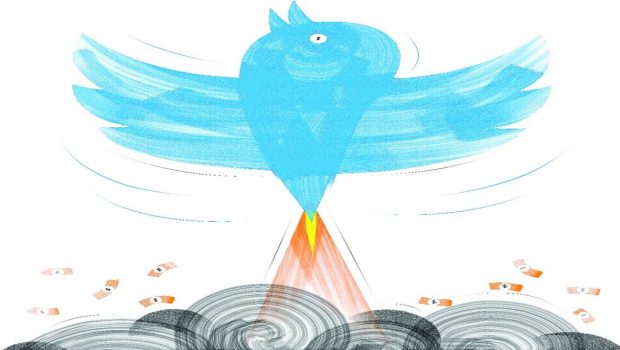We have entered the era of new technology billions
This past week, as many of us shopped on Amazon or perhaps booked flight tickets for the summer vacations, Elon Musk evinced his interest in purchasing the social media platform Twitter for $44 billion. At the time of writing of this article, the Musk acquisition has nearly gone through and the Wall Street Journal reports that Musk has sold roughly $4 billion worth of Tesla stock over the past two days to help with financing the acquisition.
Let us discuss the events of the Musk-Twitter engagement as they have unfolded since they offer valuable insights into legally tenable manoeuvres within commercial practice, while also providing insights into the era that we live in — what I call era of new-technology-billions (NTB). By NTB, I mean the fortunes that are generated by technologies that have the potential to change how we live as humans or have already changed how we live. This includes companies that innovate and create social media networks, electric vehicles, accessible space travel and cutting-edge medical innovations. Musk’s own fortune comes from new technologies like these.
Let us first examine the precursors to the Musk-Twitter engagement. According to Forbes magazine, Elon Musk with a $273 billion fortune is the richest man on our planet. Initially, what started out as a purchase of a substantial portion of Twitter shares by Musk, led to an offer from Twitter of a board seat. This was followed with a rejection by Musk of the seat at the board due to the conditions attached. Subsequently, Musk declared his intention of buying Twitter.
When Musk offered to purchase the company at $54.20 per share, the board opted for a poison pill. A poison pill in commercial law is a defense strategy used by a target firm to prevent or discourage a potential hostile takeover by an acquiring company. Often it allows shareholders the right to purchase additional shares at a discount, thereby diluting the potential ownership interest of the new or hostile party.
As the Supreme Court explained in Pramod Jain v Securities and Exchange Board of India (2016), “a hostile takeover helps to unlock the hidden value of the shares and puts pressure on management to work efficiently. On the other hand, it has the potential of unduly upsetting the normal functioning of a target company. Thus, there is an undoubted need to regulate the process of acquisitions and takeovers in the post-liberalisation era after 1991.” The Supreme Court further observes that “poison pills make takeovers unviable for the acquirer by making the cost of acquisition unattractive”. In general, poison pills are also called shareholders rights plans. Such a plan is issued by the board of directors of the company that is being bought into.
Musk’s offer for the Twitter purchase is a generous one. Twitter shares are trading well below the price offered by the billionaire. So, the board was rightly enthusiastic about the purchase. However, when the board formally heard from Musk that he had secured the requisite financing for the deal, it insisted on two important terms. The two terms are a $1-billion breakup fee to protect Twitter shareholders should Musk walk away from the deal and should the deal go through then cash outs of employee-stock-options. The board has clearly prepared well to secure the company’s long-term interests. Finally, on April 25, Twitter’s board accepted Musk’s offer, and it will become a private company after approval by regulators and shareholders.
As this deal comes to fruition, the ownership of Twitter will not be 50-year-old Musk’s highest accomplishment. The South-Africa born Musk is the CEO of three innovative companies that have ensured his NTB — SpaceX, Tesla and Neuralink. Given his age, he clearly has many decades of entrepreneurship and innovation ahead of him. Each of these companies engages with new frontiers of science and technology. What do these companies do? SpaceX was founded by Musk in 2002 to enable colonisation of Mars. SpaceX manufactures the Falcon 9 and Falcon heavy launch vehicles. On April 26, a day after Twitter’s board accepted Musk’s offer, a SpaceX launch vehicle, consisting of a two-stage Falcon 9 rocket propelled the Dragon spacecraft carrying 4 NASA astronauts and one European astronaut into space.
According to NASA, the crew will conduct a science expedition in microgravity aboard the space station. Since 2020, SpaceX has launched five flights with NASA astronauts. On April 18, a SpaceX Falcon rocket was used to successfully launch a US spy satellite force from the company’s Vandenberg Space Force Base in California.
The Musk company that has the potential to transform transportation for humans is Tesla, the electric vehicle maker. The New York Times reports that in 2012 Tesla delivered 2,650 cars. By the end of 2021, Tesla had 70 per cent of the market share on electric light-duty vehicles in the US and had delivered 936,000 vehicles worldwide. Neuralink aims to develop implantable brain-machine interfaces.
Whether or not the Twitter-Musk deal goes through, what is clear is that we live in the era of NTB. More and more acquisitions will be attempted by self-made, innovative billionaires who will seek to acquire and transform publicly traded companies into private entities. Challenges will emerge from these acquisitions. For instance, in the Musk-Twitter acquisition challenges of ensuring free speech, the regulation of fake news, and Musk’s stated aims of ensuring open access to the algorithms relied on. Whether the law in all its facets — constitutional, commercial and tech-law — keeps up with the challenges posed by the acquisition ambitions fuelled by NTB remains to be seen.
The writer is a Senior Advocate at the Supreme Court of India.








Gloss